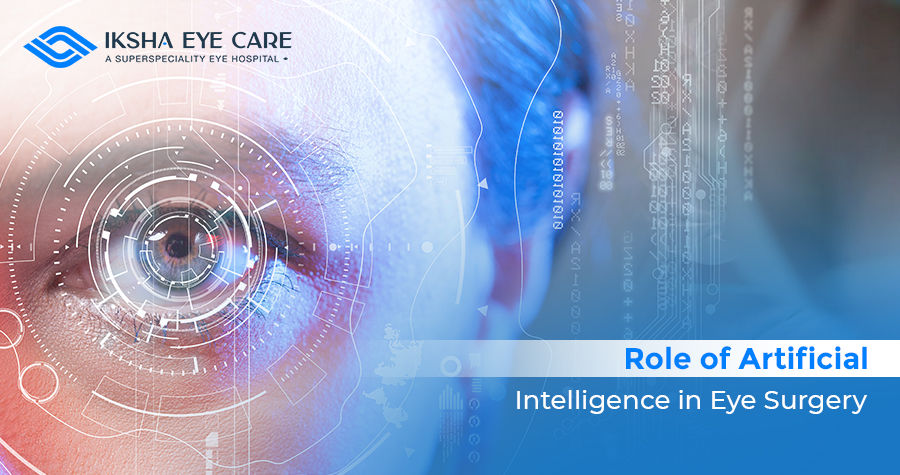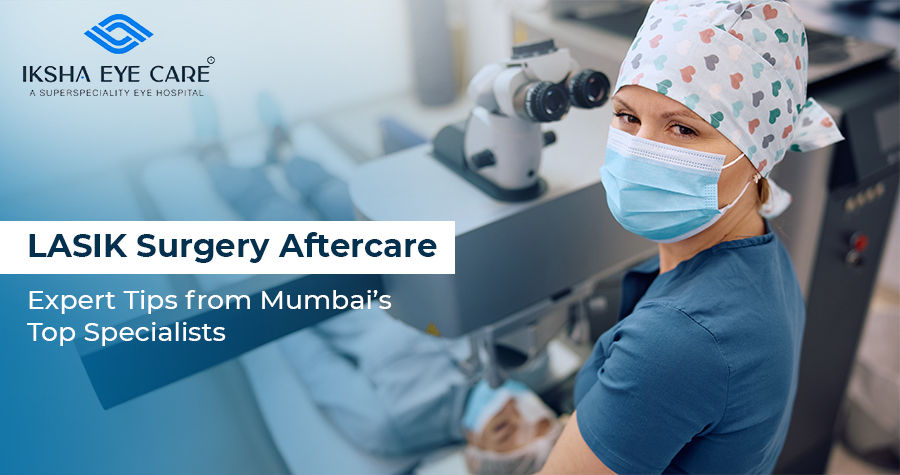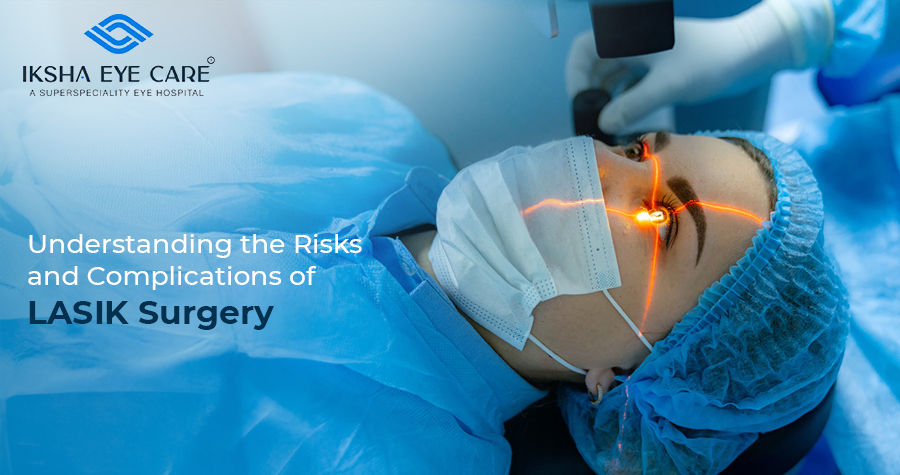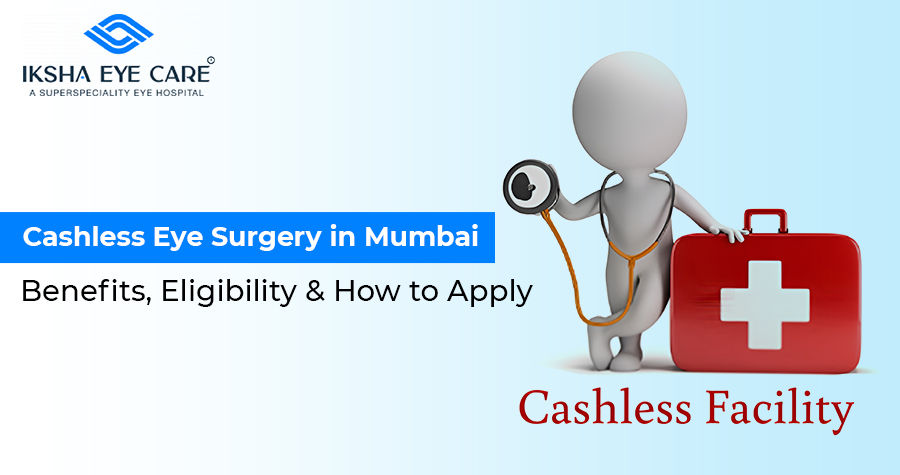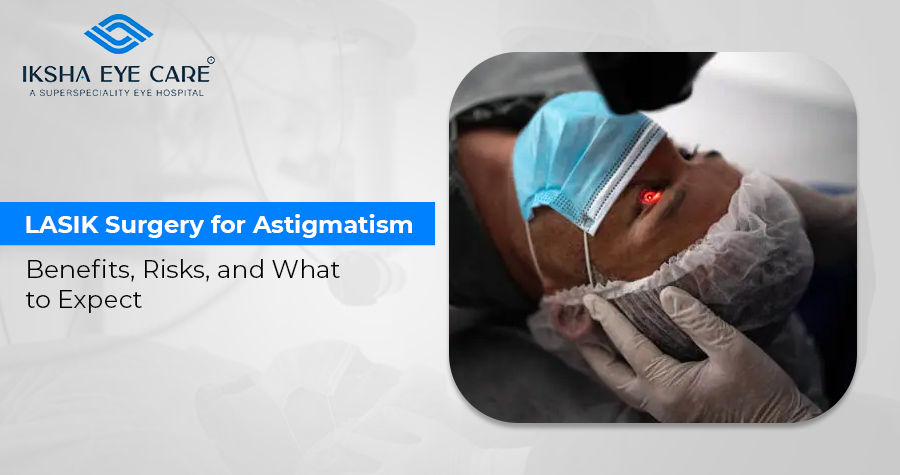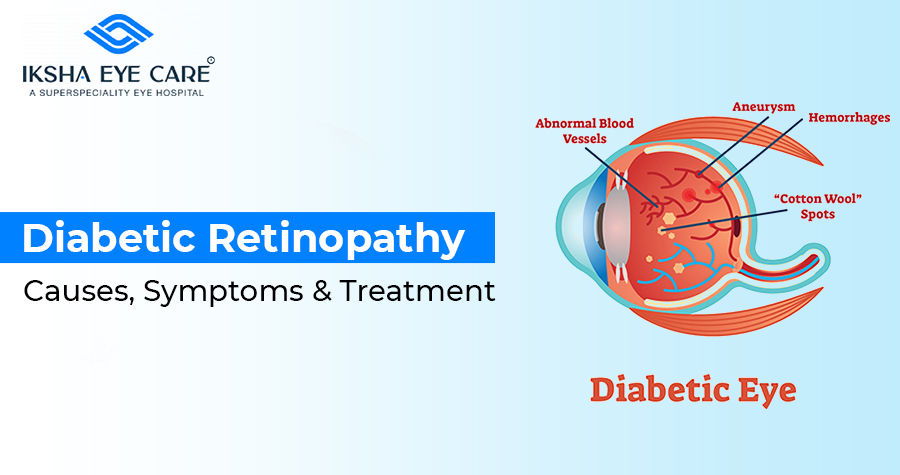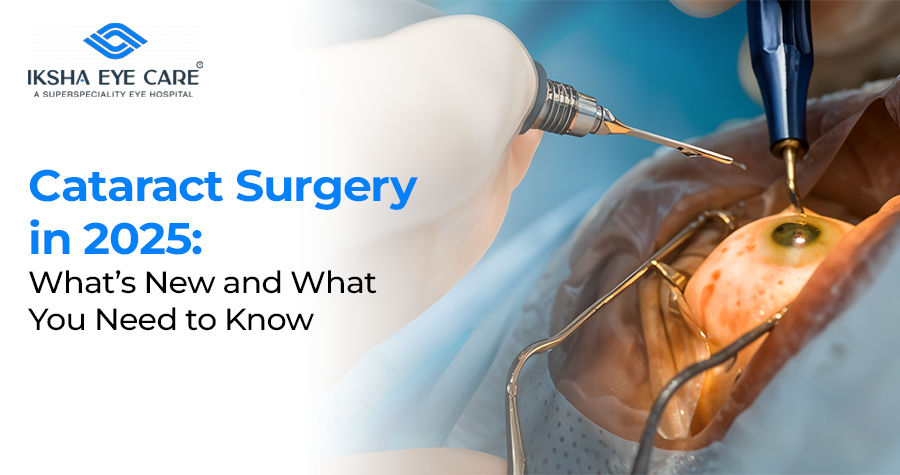Our ability to see is fundamental to how we experience the world. As we age, vision impairments like cataracts can cloud our eyesight and reduce our quality of life. However, thanks to significant steps in ophthalmology, patients now have access to Advanced Intraocular Lens Implants that not only restore clear vision but also offer freedom from spectacles. These groundbreaking lenses are changing lives, offering the possibility of observing clearly at all distances without the need for glasses.
In this comprehensive guide, we will explore the latest advancements in intraocular lens (IOL) implants, why they are transforming cataract care, and why Iksha Eye Care is a leading destination for those looking to achieve spectacle independence.
Understanding Intraocular Lens (IOL) Implants
Intraocular lenses are synthetic lenses that are inserted into the eye during cataract surgery to replace the natural, obscured lens. While traditional Monofocal IOLs restored vision at a single distance, current advances provide multi-distance clarity, blindness correction, and even vision enhancement in a variety of lighting settings.
The Need for Spectacle-Free Vision After Cataract Surgery
Modern cataract patients are no longer satisfied with only clear distant vision. They want to read, drive, utilize computers, and look for hobbies without wearing glasses. This desire contributed to the progress of IOL technology, resulting in solutions that provide spectacle-free vision following cataract surgery.
Latest IOL Technology for Cataract Surgery
The development of improved IOLs is centered on restoring natural vision and increasing patient comfort. Here are some of the most recent IOL technologies for cataract surgery available at Iksha Eye Care.
1. Multifocal intraocular lenses
Multifocal IOLs include various optical zones for different viewing distances, allowing for clear vision at close, moderate, and far ranges.
Benefit:
Reduces or removes the need for reading glasses.
Improves quality of life by restoring functional vision at all distances.
For patients looking for top multifocal performance, Iksha Eye Care offers the PanOptix and Tecnis Synergy.
2. Toric Intraocular Lenses.
Toric lenses are designed to correct astigmatism during cataract surgery. These lenses have various powers in specific sectors to match the curvature of the lens.
Benefits:
- precise correction of astigmatism
- Improved distance vision without glasses.
3. Extended Depth of Focus (EDOF) Lenses
EDOF lenses offer a continuous field of view, improving intermediate and some close vision while preserving exceptional distant clarity.
Benefits:
- Reduced outlines and brightness.
- Smoother visual transitions.
The Alcon Vivity IOL is one of the best EDOF solutions offered by Iksha Eye Care.
4. Light-adjustable lenses (LAL)
This is a groundbreaking advancement in which the lens power can be influenced after surgery using a unique UV light treatment.
Benefits:
- Customized vision correction following surgery
- Increased visual satisfaction
While not yet widely available, Iksha Eye Care is preparing to introduce this option to select candidates soon.
5. Comfortable Lenses
These lenses imitate the natural lens’s focusing capabilities by shifting place within the eye in response to eye muscle movements.
Benefits:
- offers the possibility of long-distance, natural vision.
- Reduced visual disruptions.
Although they are still being improved, accommodating lenses show promise for Iksha Eye Care’s future products.
Premium Intraocular Lens Options at Iksha Eye Care
Premium intraocular lens alternatives provide patients with superior visual outcomes customized to their lifestyle needs.
Iksha Eye Care offers the following top premium IOLs:
- The Alcon AcrySof IQ PanOpti: Is a three-lens system for observing far away.
- Tecnis Synergy: Advanced multifocal with better contrast sensitivity.
- Alcon Vivity: EDOF lens provides smoother visual transitions.
Toric Lenses: Available for all lens types to correct abnormalities.
Each lens is selected based on the patient’s lifestyle, visual expectations, and ocular health.
Best IOL for Spectacle Independence
A thorough evaluation of the patient’s needs is necessary to select the optimal IOL for spectacle independence. Among the factors are:
- Daily visual activity (reading, driving, and using the computer)
- When astigmatism is present
- Eye health (such as macular health and dry eye)
- Anticipations concerning visual disturbances and night vision
To determine the best IOL, each patient at Iksha Eye Care goes through a thorough diagnostic process and consultation. The objective is to guarantee long-term spectacle independence, regardless of the kind of lens multifocal, EDOF, or toric.
Why Choose Iksha Eye Care for Advanced Intraocular Lens Implants?
Iksha Eye Treatment is dedicated to providing excellent optical treatment and provides:
- Surgeons with decades of experience and expertise
- Advanced facilities and equipment
- Multiple high-end and advanced IOL choices
- Individualized therapy protocols
- Affordable prices and insurance coordination
Iksha Eye Care places a high priority on patient comfort, safety, and satisfaction from consultation to postoperative care.
Conclusion
Advancements in intraocular lens implants have dramatically improved outcomes for cataract patients. Today, with options like multifocal and toric IOL advancements, premium intraocular lens options, and advanced IOL technology, achieving spectacle-free vision after cataract surgery is within reach for more people than ever before.
Get in touch with Iksha Eye Care right now if you are thinking about having cataract surgery or just want to learn more about your options for advanced intraocular lens implants. Our staff is prepared to help you move toward a future without glasses and with more clarity.
Frequently Asked Questions (FAQs)
Q1: How long does it take to recover from cataract surgery with advanced IOLs?
A: Most people recover quickly, and within 24 to 48 hours, their vision improves. It could take a few weeks to fully adjust to multifocal or EDOF lenses.
Q2: Are premium IOLs financially worth the investment?
A: Premium IOLs are a wise long-term investment for people who value a complete range of vision and freedom from spectacles.
Q3: Can toric lenses completely remove blindness?
A: Toric lenses can greatly lessen or even completely remove the condition if they are chosen and positioned correctly.
Q4: After surgery, will I still require glasses?
A: Many patients gain complete spectacle independence, particularly with multifocal or EDOF lenses. Depending on the IOL type and eye health, some people could still require glasses for particular tasks.
Q5: Is the procedure painful?
A: Cataract surgery usually takes less than 30 minutes, is painless, and is done under local anesthetic.







